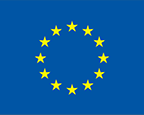Human exposure
The climate change may affect bioaccumulation properties as well as food web structure, both of which may affect human exposure to contaminants, both in the Arctic and in Europe. Future changes in exposure to contaminants may also be due to lifestyle changes, causing dietary transition away from traditional foods, which is not necessarily related to climate change.
In the Norwegian Fish and Game study, the association between external exposure (habitual diet) and internal exposure (blood concentrations) to contaminants were studied for ΣPBDE and HBCDD (hexabromocyclododecane) (Knutsen et al., 2008), PCBs and dioxins (Kvalem et al., 2009), PFAS (Haug et al., 2010) and mercury (Jenssen et al., 2012). Although the examined compounds differ with regard to factors such as concentrations, absorption, half-life and toxicokinetic properties, seafood consumption emerged as an important factor in all studies.
Studies in the ArcRisk project about mercury in humans using dietary questionnaires showed that fish consumption was a robust positive predictor for mercury exposure and concentrations. Seafood consumption is not the only dietary predictor, but the predictor that can be expected to be influenced by climate change.
Diet is however not the only source of exposure. For e.g. flame retardants and PFAS, dust and indoor air has also been identified as important sources (Haug et al., 2011).





















